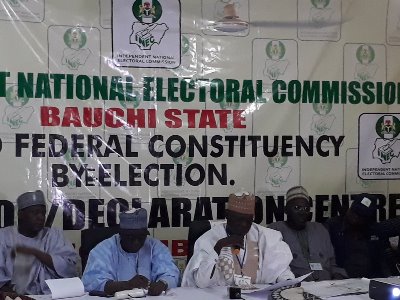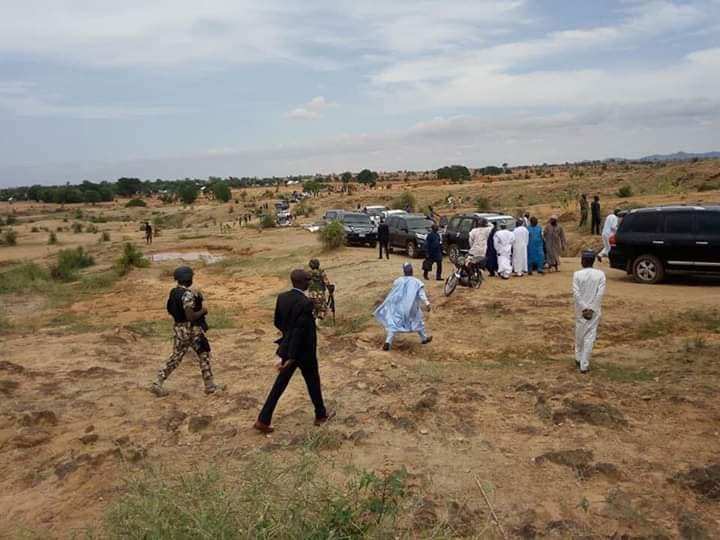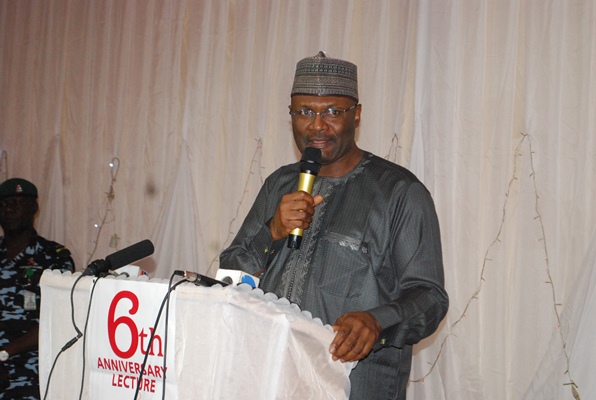
Prof. Mahmood Yakubu, Chairman of INEC has delivered a lecture on “Political Transitions and Africa’s Economic Development’’ in which he assured Nigerians of free, fair and credible elections in spite of daunting challenges.
The lecture which was organised by Realnews, an online magazine, held in Sheraton Hotel in Lagos on November 15, 2018.
Confident that INEC would not fail the nation in the conduct of 2019 general elections, he said that they had learnt from experience.
Learning from the experience of the 2015 General elections, he said, a lot have been put in place to reform the electoral process, including the adoption of a new approach to the printing of the Permanent Voters Cards (PVCs).
“The Continuous Voters Registration (CVR) exercise was conducted on quarterly basis and so was the printing of the PVCs. By doing so, the number of cards available for collection by citizens will reduce considerably well ahead of the elections.
“For instance, all the cards for citizens registered in 2017 have been delivered to the States for 2018 registrations, the cards for those registered in the first and second quarters have similarly been printed and delivered to the States.
“The cards for the 4.1 million new registrants for the third quarter of 2018 will be ready by the end of this month (i.e November 2018). This will also include all the cards for those who applied for intra and Inter-State transfers as well as replacement of damaged or defaced cards.
“The Commission is working on a new approach to the collection of the PVCs by registered voters which will commence in early December and continue until at least one week to the 2019 General Elections.’’
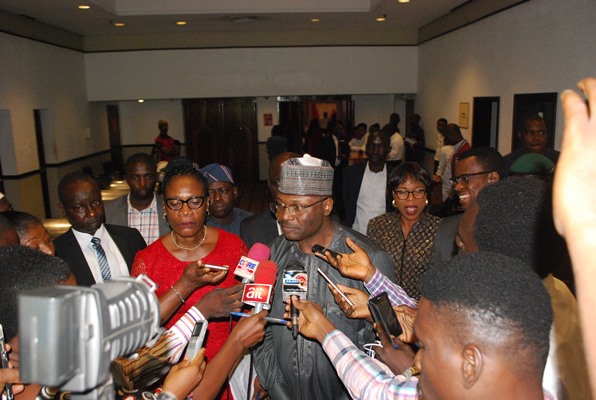
The Commission, he said, has stabilized the election calendar by announcing election date in advance.
The principle was first set out that going forward, Nigeria’s national elections will be held on the second Saturday of the month of February of each election year while State elections will be held two weeks later.
On this basis, the Commission fixed Saturday 16th February 2019 for Presidential and National Assembly elections while Governorship and State Assembly elections will hold on Saturday 2nd March 2019.
“It is therefore possible to determine the dates of future election thereby engendering certainty in the electoral calendar. The electoral commission, political parties, security agencies, civil society organisations, the, the media, national and international observers etc. can plan in advance.
“The Commission believes that the dates for holding elections should not be kept in secret,’’ he said.
He said that no more use of incidence form, “instead the manual register of voters has been redesigned to provide for a box for thumb printing and telephone number of any voter whose biometric is not authenticated by the Smart Card Reader (SCR)’’.
This will allow for a check in the event of litigation.
“Separate accreditation and voting have been harmonized since 2016 the Commission has been doing simultaneous accreditation and voting.
“The Commission has introduced the poster (EC6OE) containing same details of poling unit results (EC8A) issued to party agents. The poster is posted at each polling unit for public information in order to enhance credibility and transparency of the result management process.
“Greater engagement on the role of security agencies in elections resulting in the suspension of morning parade to enable personnel and materials arrive the polling units o time.
He said that the commission has embarked on the installation of trackers in the vehicles conveying sensitive materials to forestall any attempt to hijack or diversion.
It has also introduced magnifying glasses and tactile jacket/braille guide to enable visually impaired voters to vote unassisted.
These innovations were introduced I the Anambra, Ekiti and Osun Governorship elections so also the improved logistics to enable the Commission deploy personnel and materials in time for the commencement of polls at 8 am.
“For instance, the Commission achieved almost 100% deployment in the 2018 Osun Governorship election. We are working to ensure greater capacity to deploy in the 2019 General Elections. It is a huge task, easily the biggest logistical operation a nation can undertake in peacetime. ‘’
He said that the functionality of the SCRs had been enhanced again. The Ekiti and Osun Governorship elections, the reported cases of SCR malfunction in relation to the number of polling units to which they were deployed was statistically insignificant. However, we are still working to endure optimal performance.
“As the Commission is preparing for the 2019 General Elections, we have also been conducting off-section elections, the largest number I the nation’s history so far. The elections are broken into the following categories.
“Eighty-one (81) court-ordered re-run elections following successful litigations relating to the conduct of the 2015 General Elections and the 2016 FCT Area Council elections, consisting of 10 Senatorial Districts, 17 Federal Constituencies (House of Representatives), 53 State Constituencies (House of Assembly) ad 1 Ward (Councillorship Constituency).
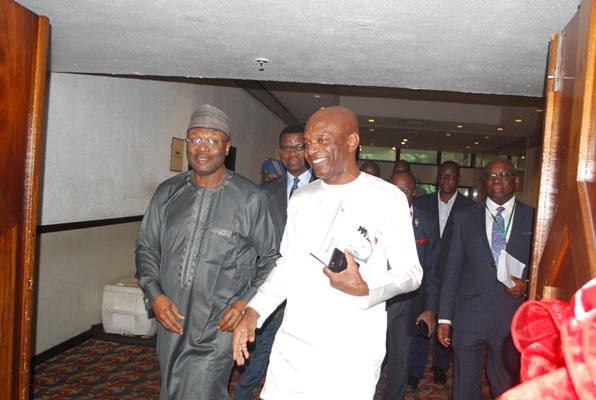
“Seventy-five (75) end of tenure elections to the offices of Governors in Kogi, Bayelsa, Edo, Ondo, Anambra, Ekiti and Osun States as well as the 68 Area Council Chairman and Councllors in the FCT.
“Thirty-five (35) bye-elections in 22 States and the FCT caused by the death of resignation of serving members of the National or State Assemblies.
“Although the off-season elections divert attention from planning for the 2019 General Elections, they enable us to fine-tune and test run many of our innovation and plan.’’
Prof. Yakubu said that the overall effect on the electoral process “is that our elections are getting better in terms of preparations, Election Day logistics (EDL) and outcome’’.
At the same time, the commission is open to other ideas from all stakeholders that will assist in ensuring success.








